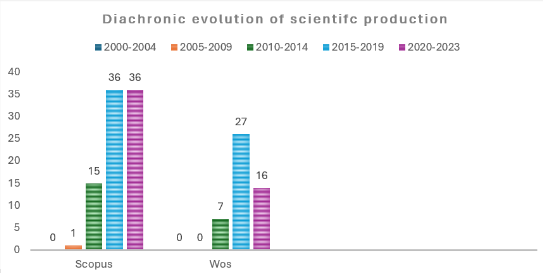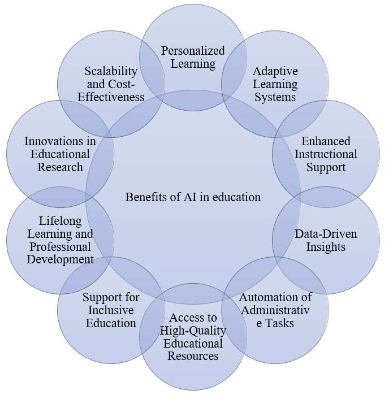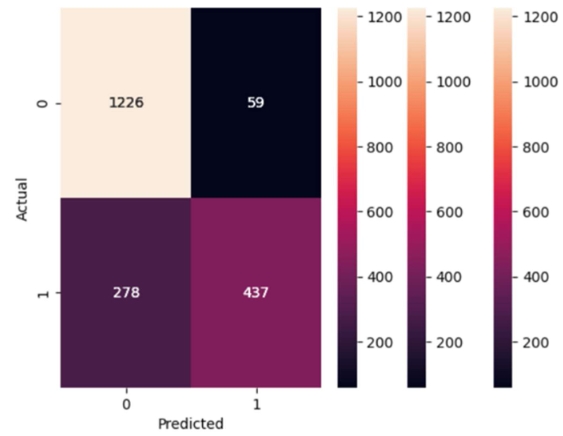Beyond evaluation: Improving quality and impact through programme accreditation
Abstract
This study assesses the role and process of accreditation in enhancing the quality and efficacy of higher education institutions in Zimbabwe, with a specific focus on the transformative effects this process has on educational standards. Using Zimbabwe Ezekiel Guti University (ZEGU) as a case study, the research examines the programme accreditation process, the challenges, and the success factors thereof. The study adopts a qualitative approach, with in-depth interviews with participants across administration, faculty, and students and document reviews. Through findings of the study, we model the multi-stage accreditation process, identifying challenges, key factors, and strategies that contribute to successful accreditation, such as rigorous self-evaluation, robust stakeholder engagement, and compliance with overarching accreditation benchmarks. The research findings present a compelling argument for the integration of accreditation as a central component of quality assurance across the higher education spectrum. The implications of this study stretch across borders, offering evidence-based recommendations for policymakers and educators to reinforce their quality assurance systems and thereby fostering an environment conducive to generating graduates prepared for the global workforce. By highlighting the accreditation process as a vehicle for continuous quality improvement, this research positions higher education institutions as pivotal contributors to individual empowerment and societal progress. The research thereby offers insights that are intended to support policy formulation, inform institutional strategies, and guide quality enhancement initiatives across various educational contexts.
References
[1]Duarte N, Vardasca R. Literature Review of Accreditation Systems in Higher Education. Education Sciences. 2023; 13(6): 582. doi: 10.3390/educsci13060582
[2]Iqbal S, Taib CAB, Razalli Mohd R. The effect of accreditation on higher education performance through quality culture mediation: the perceptions of administrative and quality managers. The TQM Journal. 2023; 36(2): 572-592. doi: 10.1108/tqm-11-2022-0322
[3]Makhoul SA. Higher education accreditation, quality assurance and their impact to teaching and learning enhancement. Journal of Economic and Administrative Sciences. 2019; 35(4): 235-250. doi: 10.1108/jeas-08-2018-0092
[4]Puthi N. Quality-driven university curriculum reform in Zimbabwe: a critical conceptualisation of harmonised minimum bodies of knowledge. Higher Education Evaluation and Development. 2022; 16(2): 121-135. doi: 10.1108/heed-01-2022-0002
[5]Garwe EC. Quality assurance and accreditation in Zimbabwe: Challenges and opportunities for enhancement. International Journal of African Higher Education. 2014; 1(1). doi: 10.6017/ijahe.v1i1.5650
[6]Zimbabwe Ezekiel Guti University (ZEGU). Our vision and mission. Zimbabwe Ezekiel Guti University. Available online: https://www.zegu.ac.zw/about-us/our-vision-mission/ (accessed on 16 January 2023).
[7]Mainga W, Murphy-Braynen MB, Moxey R, et al. Graduate Employability of Business Students. Administrative Sciences. 2022; 12(3): 72. doi: 10.3390/admsci12030072
[8]Cruz FJF, Gálvez IE, Santaolalla RC. Impact of quality management systems on teaching-learning processes. Quality Assurance in Education. 2016; 24(3): 394-415. doi: 10.1108/qae-09-2013-0037
[9]World Bank. State of education in sub-Saharan Africa: A comprehensive analysis from the perspective of systems efficiency and equity. Available online: https://www.worldbank.org/en/region/afr/brief/state-of-education-in-sub-saharan-africa-a-comprehensive-analysis (accessed on 16 January 2023).
[10]Yin RK. Case study research: Design and methods, 5th ed. Sage Publications; 2014.
[11]Muchemwa K. Internal quality assurance challenges in a private university in Zimbabwe: A case of Solusi University. Journal of Social Sciences. 2017; 49(1-3): 14-28. doi: 10.1080/09718923.2017.1305046
[12]Bernadin S, Ribera LA. Continuous improvement of online courses: Let yourself be guided by quality matters. Online Learning. 2017; 21(4): 83-102. doi: 10.24059/olj.v21i4.1275
[13]Emmanuelle G. Reviews of Literature on Accreditation and Quality Assurance. International Journal of Reviews. 2023; 1(1): 1-57.
[14]Kayyali M. An Overview of Quality Assurance in Higher Education: Concepts and Frameworks (Mar 2023). International Journal of Management, Sciences, Innovation, and Technology (IJMSIT). 2023; 4(2): 1-4.
[15]Baer T. Assessment, accreditation and transparency: Finding the right balance. Teaching in Higher Education. 2017; 22(8): 911-922. doi: 10.1080/13562517.2017.1359661
[16]Suskie L. Five dimensions of quality: A common sense guide to accreditation and accountability. John Wiley & Sons; 2015.
[17]Boud D, Soler R. Sustainable assessment revisited. Routledge; 2013.
[18]Desveaux L, Mitchell JI, Shaw J, et al. Understanding the impact of accreditation on quality in healthcare: A grounded theory approach. International Journal for Quality in Health Care. 2017; 29(7): 941-947. doi: 10.1093/intqhc/mzx136
[19]Ryan T. Quality assurance in higher education: A review of literature. Higher Learning Research Communications. 2011; 5(4). doi: 10.18870/hlrc.v5i4.257
[20]De Vincenzi A, Garau A, Guaglianone A. Has the quality of teaching and learning processes improved as a result of the implementation of quality assurance coordinated by the state? Quality in Higher Education. 2018; 24(1): 55-65. doi: 10.1080/13538322.2018.1426382
[21]Kumar P, Shukla B, Passey D. Impact of Accreditation on Quality and Excellence of Higher Education Institutions. Investigacion Operacional. 2021; 41(2): 151-167.
[22]Liu Q, Liu L. Exploring organisational learning in universities’ responses to a quality assurance reform: experiences from Ontario, Canada. Quality in Higher Education. 2018; 24(1): 29-42. doi: 10.1080/13538322.2018.1429077
[23]Bishoff L. Voluntary versus mandatory accreditation. New Directions for Higher Education. 2018; 2018(181): 11-20. doi: 10.1002/he.20259
[24]Garwe EC, Thondhlana J, Saidi A. Evaluation of a quality assurance framework for promoting quality research, innovation and development in higher education institutions in Zimbabwe. Journal of the British Academy. 2021; 9s1: 127-157. doi: 10.5871/jba/009s1.127
[25]Ncube CM, Maradze A, Dube P, et al. Implementing Quality Assurance in Higher Education to Enhance Sustainable Development: Challenges and Opportunities, Zimbabwean Perspectives. Indiana Journal of Arts & Literature. 2021; 2(9): 8-13.
[26]Shava RA, Chinyoka K, Gukurume S. Quality assurance in higher education: A case study of a Zimbabwean university. International Journal of Educational Development. 2021; 86: 102464. doi: 10.1016/j.ijedudev.2021.102464
[27]Harvey L, Newton J. Transforming quality evaluation. Quality in Higher Education. 2004; 10(2): 149-165.
[28]Shah M, Cheng M. Understanding the faculty perspective on external quality assurance: implications for practice. Quality Assurance in Education. 2020; 28(4): 333-346. doi: 10.1108/QAE-09-2020-0085
[29]Davis J, Pawlak V, Claassen C, Cope D. Forum: The engagement of community health workers in secondary stroke prevention: Perspectives from an ongoing research study. ANS Advances in Nursing Science. 2015; 38(2): 141-152. doi: 10.1097/ANS.0000000000000066
[30]Yazan B. Three approaches to case study methods in education: Yin, Merriam, and Stake. The Qualitative Report. 2015; 20(2): 20.
[31]Braun V, Clarke V. Using thematic analysis in psychology. Qualitative Research in Psychology. 2006; 3(2): 77-101. doi: 10.1191/1478088706qp063oa
[32]Creswell JW, Creswell JD. Research design: Qualitative, quantitative, and mixed methods approaches, 5th ed. SAGE; 2018.
[33]Nowell LS, Norris JM, White DE, Moules NJ. Thematic analysis: Striving to meet the trustworthiness criteria. International Journal of Qualitative Methods. 2017; 16(1): 1609406917733847. doi: 10.1177/1609406917733847
[34]Tracy SJ. Qualitative quality: Eight “big-tent” criteria for excellent qualitative research. Qualitative Inquiry. 2010; 16(10): 837-851. doi: 10.1177/1077800410383121
[35]Morin E. From the concept of system to the paradigm of complexity. Systems Research and Behavioral Science. 2020; 37(3): 537-545. doi: 10.1002/sres.2680
[36]Bleiklie I, Enders J, Lepori B. Universities and the production of space: The transformation of university campuses in Europe and the United States. Routledge; 2018.
[37]Ossiannilsson E. Quality monitoring and enhancement in the digital age: approaches and tools to supporting learning wherever it occurs. Smart Learning Environments. 2017; 4(1). doi: 10.1007/978-3-319-17727-4_52-2
[38]Elassy N. The concepts of quality, quality assurance and quality enhancement. Quality Assurance in Education. 2015; 23(3): 250-261. doi: 10.1108/qae-11-2012-0046
Copyright (c) 2024 E. C. Garwe, M. Zunguze, M. Kanda

This work is licensed under a Creative Commons Attribution 4.0 International License.









